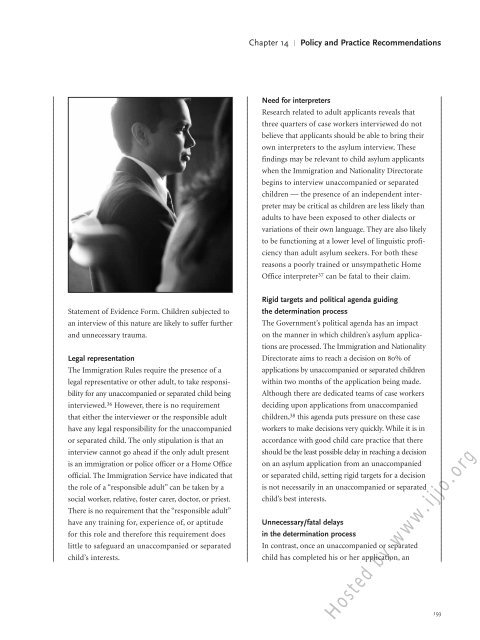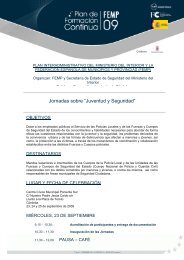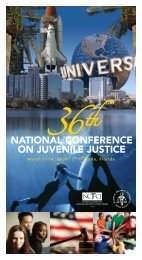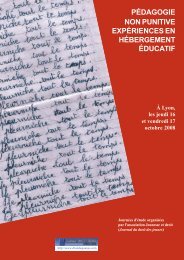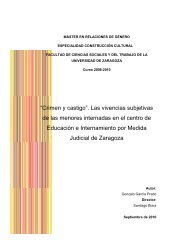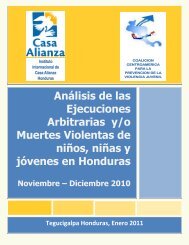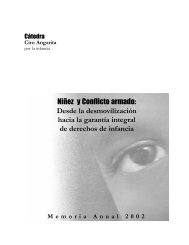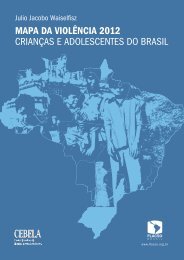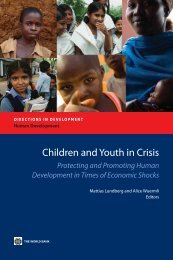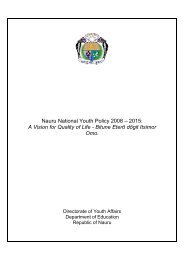Hosted by www.ijjo.org
Hosted by www.ijjo.org
Hosted by www.ijjo.org
You also want an ePaper? Increase the reach of your titles
YUMPU automatically turns print PDFs into web optimized ePapers that Google loves.
Chapter 14 | Policy and Practice Recommendations<br />
Need for interpreters<br />
Research related to adult applicants reveals that<br />
three quarters of case workers interviewed do not<br />
believe that applicants should be able to bring their<br />
own interpreters to the asylum interview. These<br />
findings may be relevant to child asylum applicants<br />
when the Immigration and Nationality Directorate<br />
begins to interview unaccompanied or separated<br />
children — the presence of an independent interpreter<br />
may be critical as children are less likely than<br />
adults to have been exposed to other dialects or<br />
variations of their own language. They are also likely<br />
to be functioning at a lower level of linguistic proficiency<br />
than adult asylum seekers. For both these<br />
reasons a poorly trained or unsympathetic Home<br />
Office interpreter 37 can be fatal to their claim.<br />
Statement of Evidence Form. Children subjected to<br />
an interview of this nature are likely to suffer further<br />
and unnecessary trauma.<br />
Legal representation<br />
The Immigration Rules require the presence of a<br />
legal representative or other adult, to take responsibility<br />
for any unaccompanied or separated child being<br />
interviewed. 36 However, there is no requirement<br />
that either the interviewer or the responsible adult<br />
have any legal responsibility for the unaccompanied<br />
or separated child. The only stipulation is that an<br />
interview cannot go ahead if the only adult present<br />
is an immigration or police officer or a Home Office<br />
official. The Immigration Service have indicated that<br />
the role of a “responsible adult” can be taken <strong>by</strong> a<br />
social worker, relative, foster carer, doctor, or priest.<br />
There is no requirement that the “responsible adult”<br />
have any training for, experience of, or aptitude<br />
for this role and therefore this requirement does<br />
little to safeguard an unaccompanied or separated<br />
child’s interests.<br />
Rigid targets and political agenda guiding<br />
the determination process<br />
The Government’s political agenda has an impact<br />
on the manner in which children’s asylum applications<br />
are processed. The Immigration and Nationality<br />
Directorate aims to reach a decision on 80% of<br />
applications <strong>by</strong> unaccompanied or separated children<br />
within two months of the application being made.<br />
Although there are dedicated teams of case workers<br />
deciding upon applications from unaccompanied<br />
children, 38 this agenda puts pressure on these case<br />
workers to make decisions very quickly. While it is in<br />
accordance with good child care practice that there<br />
should be the least possible delay in reaching a decision<br />
on an asylum application from an unaccompanied<br />
or separated child, setting rigid targets for a decision<br />
is not necessarily in an unaccompanied or separated<br />
child’s best interests.<br />
Unnecessary/fatal delays<br />
in the determination process<br />
In contrast, once an unaccompanied or separated<br />
child has completed his or her application, an<br />
<strong>Hosted</strong> <strong>by</strong> <strong>www</strong>.<strong>ijjo</strong>.<strong>org</strong><br />
193


